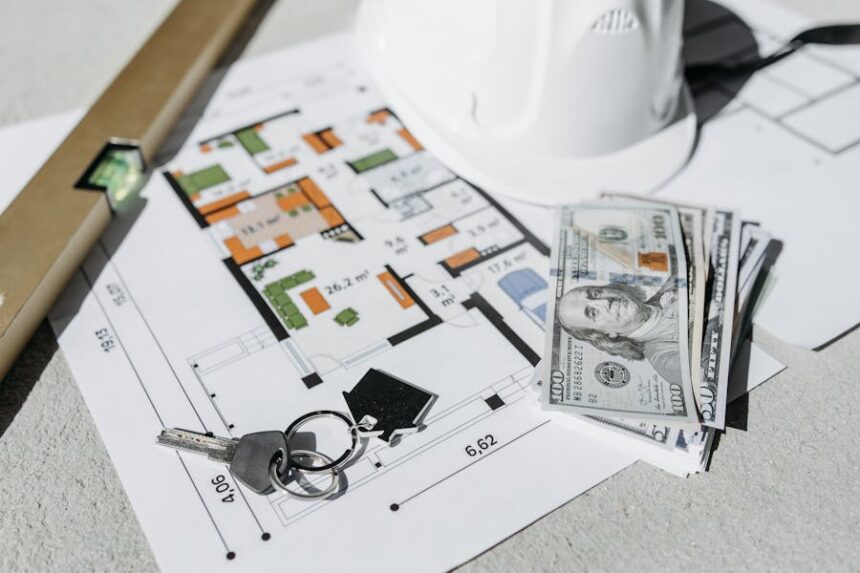Property development investment has long been seen as a pathway to building long-term wealth. Whether you’re an individual investor or part of a group looking to diversify your portfolio, the appeal of developing land or buildings for profit remains strong. But what exactly does property development investment involve, and what are the potential risks and rewards?
What Is Property Development Investment?
At its core, property development investment involves financing the construction, renovation, or subdivision of residential, commercial, or mixed-use properties. Investors can engage in development projects directly, by buying and managing land themselves, or indirectly through platforms and partnerships that pool capital for larger-scale developments.
The goal is to add value to land or existing structures, typically through planning improvements, construction, or conversion, and then either sell the asset or retain it for rental income.
Why Property Development Appeals to Investors
Potential for High Returns
One of the most attractive features of property development investment is the potential for significantly higher returns than traditional property investment. When executed correctly, a development project can generate profit from both capital growth and rental yield.
Control Over the Asset
Compared to investing in shares or managed funds, property development gives investors more influence over the outcome. You can choose the project, manage the design and build, and decide how to exit the investment, whether by sale or holding it as a long-term rental asset.
Contribution to Community Growth
Development projects often play a role in revitalising neighbourhoods, increasing housing supply, or creating commercial hubs. Investors not only profit financially but also participate in broader economic development.
Entry Points for Investors
Not everyone has the resources or experience to manage a property development on their own. Fortunately, several entry points exist:
Direct Investment
This involves purchasing a development site, engaging consultants, securing approvals, and overseeing construction. It offers maximum control but also requires significant capital and time.
Joint Ventures
By partnering with developers or other investors, individuals can share both the risk and the profit. Each party contributes capital, skills, or land, and profits are divided based on pre-agreed terms.
Development Syndicates
In a syndicate model, a group of investors pools funds to finance a single project. Syndicates are usually managed by a professional developer or fund manager, reducing the day-to-day responsibility for individual investors.
Online Investment Platforms
Recent years have seen the rise of online platforms that offer fractional property development investment opportunities. These allow investors to get involved in vetted projects with lower minimum investments, while the platform handles project management and reporting.
Key Factors to Consider
Location and Demand
Understanding the local property market is essential. Is there demand for the type of property being developed? Are there infrastructure plans that could increase the value of the area? Successful development often comes down to choosing the right site in the right location.
Planning and Permits
Securing the necessary approvals can make or break a development. Investors should ensure that all zoning, planning, and compliance requirements are in place before capital is committed.
Construction Risks
Delays, cost overruns, and quality issues are common in construction. It’s important to assess the developer’s track record and have contingency plans in place.
Exit Strategy
Every development should have a clear plan for how and when profits will be realised. Will the property be sold on completion, refinanced and rented, or held as a long-term asset?
Benefits of Diversifying with Property Development
Property development can serve as a useful diversification tool within an investment portfolio. It behaves differently from traditional real estate or equities, offering a blend of capital growth and income. Moreover, by investing across multiple projects or stages of development, investors can reduce overall risk and build a more balanced portfolio.
Who Should Consider Property Development Investment?
This type of investment is well-suited to individuals or groups with:
- A moderate to high-risk tolerance
- Interest in real estate and property markets
- Long-term financial goals
- Willingness to conduct due diligence or rely on professional oversight
It’s important to assess whether the level of risk and the time frame align with your broader financial objectives.
Conclusion
Property development investment can be a rewarding way to grow your capital, contribute to community infrastructure, and gain exposure to the dynamic world of real estate. Whether you’re managing a project yourself or investing through a structured platform, success lies in careful planning, research, and selecting the right partners. As more investors look beyond traditional avenues, property development remains a compelling choice for those seeking both impact and returns.




